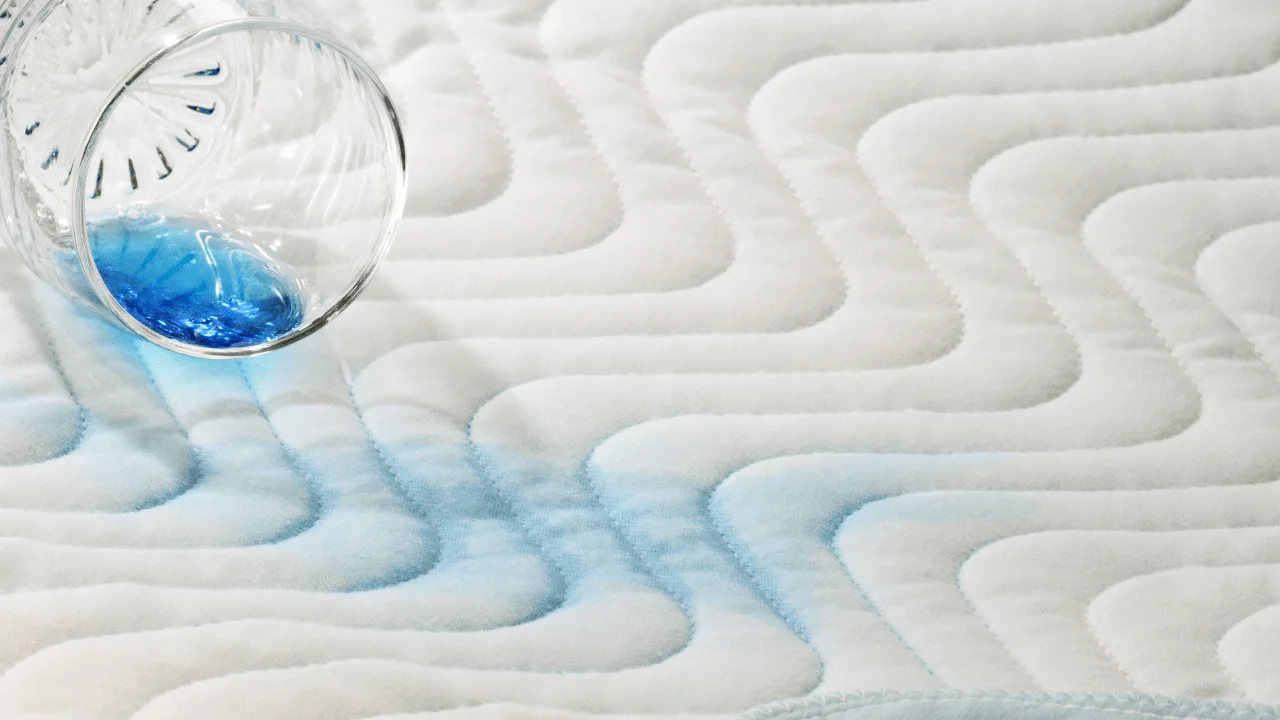
Postpartum incontinence. After delivery, you could have a postpartum condition known as urinary incontinence, sometimes called stress incontinence. You may have already developed incontinence issues during pregnancy – leaking a little urine due to pressure on the bladder from the growing baby – and it can be surprising to find out that even postpartum, this can continue. The good news? Urinary incontinence usually goes away on its own within a few weeks of giving birth, although for some women, it may last a bit longer. Kegels can help, but if it’s affecting your quality of life or you’re concerned, you may be referred to a urogynecologist for an evaluation.
IN THIS ARTICLE
- What causes postpartum incontinence?
- Who’s more likely to have incontinence after pregnancy?
- How long will postpartum incontinence last?
- What can I do about leaking urine?
- Treatment for postpartum urinary incontinence
What causes postpartum incontinence?
Normally your nerves, ligaments, and pelvic floor muscles work together to support your bladder and keep the urethra closed so urine doesn’t leak. Overstretching or injuring these during pregnancy or childbirth may cause urine leakage.
The reason it’s called stress incontinence isn’t because of your emotional state, but instead, the way your body – especially your bladder – becomes stressed during pregnancy due to increased pressure.
Even though delivery takes this pressure off, incontinence can continue because of weakened pelvic floor muscles. That can be especially true if there’s any damage to the nerves controlling the bladder or if you’ve had an episiotomy during delivery.
Who’s more likely to have incontinence after pregnancy?
Women who are overweight or obese are much more likely to develop stress incontinence – many studies find this condition to be the single most important risk factor.
Women who had moderate to severe stress incontinence during or before pregnancy are also more prone to persistent urinary incontinence after delivery, sometimes lasting up to several years.
You may be more likely to have postpartum stress incontinence if you gave birth vaginally instead of delivering by cesarean section. (But even some moms who have a scheduled c-section and avoid labor altogether continue to have stress incontinence after delivery.)
You may also have a greater risk of postpartum stress incontinence if you:
- Had gestational diabetes
- Had an assisted vaginal delivery, particularly if forceps were used
- Had a prolonged pushing stage or a large baby
- Had many previous children, especially if you delivered vaginally
- Smoke
Recent research suggests that genetic predisposition may play a role as well.
How long will postpartum incontinence last?
For some moms, leaking stops completely or becomes much less frequent within a few weeks of giving birth, while for others it can persist in varying degrees for several months or even longer.
Some develop urinary incontinence – either again or for the first time – years later because the problem becomes more common with age. However, menopausal women have stress incontinence in similar numbers, regardless of the number of pregnancies they had or the type of delivery.
What can I do about leaking urine?
Talk to your provider – they may want to do a physical exam and get a urine culture and urinalysis to rule out a urinary tract infection (especially if you also have symptoms such as pain or burning when you urinate).
If that’s not the cause, your provider may refer you to a urogynecologist for an evaluation. She’ll likely recommend that you start by doing የ ኪጋል ልምምዶችን regularly, and make them a lifelong habit. When done correctly and often, they can strengthen your pelvic floor muscles and give you better bladder control. (Your provider will make sure you know how to do them the right way.)
If you were obese when you got pregnant, or if you gained more pregnancy weight than recommended, it can help to lose the excess weight through diet, exercise and prolonged breastfeeding.
You may also want to:
- Wear a sanitary pad to protect your clothes from urine leaks.
- Try crossing your legs and tightening your pelvic muscles when you feel a sneeze or a cough coming on.
- Limit your alcohol and caffeine intake. (There’s some evidence that consuming less caffeine might help.)
- Prevent constipation because straining to have a bowel movement may worsen the problem.
Treatment for postpartum urinary incontinence
If you continue to have incontinence for more than a month after doing regular Kegel exercises, ask your provider for a referral to a pelvic floor rehab physical therapist. Many women with urinary incontinence find relief from individualized pelvic floor therapy.
If pelvic floor muscle training doesn’t help, you may want to consider other possible treatments, such as medication, biofeedback, or surgery. Discuss these options with your provider to find the one that’s right for you.
Read more about


Add a Comment